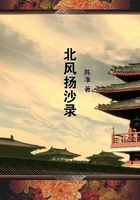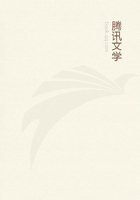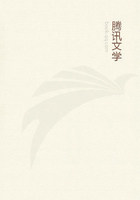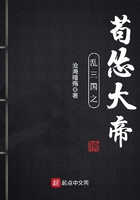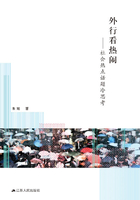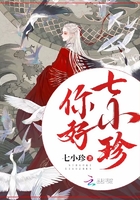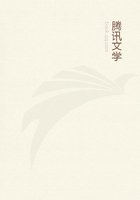He wondered first whether his mother would ever get the letter he had posted the week before, and whether it would be brought to her cottage or she would go to the post office to fetch it. And then, he fell to thinking of the little English village where he had been born, and where he had grown up. He saw his mother's fat white ducklings creep in and out under the gate, and waddle down to the little pond at the back of the yard; he saw the school house that he had hated so much as a boy, and from which he had so often run away to go a-fishing, or a-bird's-nesting. He saw the prints on the school house wall on which the afternoon sun used to shine when he was kept in; Jesus of Judea blessing the children, and one picture just over the door where he hung with his arms stretched out and the blood dropping from his feet. Then Peter Halket thought of the tower at the ruins which he had climbed so often for birds' eggs; and he saw his mother standing at her cottage gate when he came home in the evening, and he felt her arms round his neck as she kissed him; but he felt her tears on his cheek, because he had run away from school all day; and he seemed to be making apologies to her, and promising he never would do it again if only she would not cry. He had often thought of her since he left her, on board ship, and when he was working with the prospectors, and since he had joined the troop; but it had been in a vague way; he had not distinctly seen and felt her. But tonight he wished for her as he used to when he was a small boy and lay in his bed in the next room, and saw her shadow through the door as she bent over her wash-tub earning the money which was to feed and clothe him. He remembered how he called her and she came and tucked him in and called him "Little Simon," which was his second name and had been his father's, and which she only called him when he was in bed at night, or when he was hurt.
He sat there staring into the blaze. He resolved he would make a great deal of money, and she should live with him. He would build a large house in the West End of London, the biggest that had ever been seen, and another in the country, and they should never work any more.
Peter Halket sat as one turned into stone, staring into the fire.
All men made money when they came to South Africa,--Barney Barnato, Rhodes--they all made money out of the country, eight millions, twelve millions, twenty-six millions, forty millions; why should not he!
Peter Halket started suddenly and listened. But it was only the wind coming up the kopje like a great wheezy beast creeping upwards; and he looked back into the fire.
He considered his business prospects. When he had served his time as volunteer he would have a large piece of land given him, and the Mashonas and Matabeles would have all their land taken away from them in time, and the Chartered Company would pass a law that they had to work for the white men; and he, Peter Halket, would make them work for him. He would make money.
Then he reflected on what he should do with the land if it were no good and he could not make anything out of it. Then, he should have to start a syndicate; called the Peter Halket Gold, or the Peter Halket Iron-mining, or some such name, Syndicate. Peter Halket was not very clear as to how it ought to be started; but he felt certain that he and some other men would have to take shares. They would not have to pay for them. And then they would get some big man in London to take shares. He need not pay for them; they would give them to him; and then the company would be floated. No one would have to pay anything; it was just the name--"The Peter Halket Gold Mining Company, Limited." It would float in London; and people there who didn't know the country would buy the shares; THEY would have to give ready money for them, of course; perhaps fifteen pounds a share when they were up!--Peter Halket's eyes blinked as he looked into the fire.--And then, when the market was up, he, Peter Halket, would sell out all his shares.
If he gave himself only six thousand and sold them each for ten pounds, then he, Peter Halket, would have sixty thousand pounds! And then he would start another company, and another.
Peter Halket struck his knee softly with his hand.
That was the great thing--"Always sell out at the right time." That point Peter Halket was very clear on. He had heard it so often discussed. Give some shares to men with big names, and sell out: they can sell out too at the right time.
Peter Halket stroked his knee thoughtfully.
And then the other people, that bought the shares for cash! Well, they could sell out too; they could all sell out!
Then Peter Halket's mind got a little hazy. The matter was getting too difficult for him, like a rule of three sum at school when he could not see the relation between the two first terms and the third. Well, if they didn't like to sell out at the right time, it was their own faults. Why didn't they? He, Peter Halket, did not feel responsible for them.
Everyone knew that you had to sell out at the right time. If they didn't choose to sell out at the right time, well, they didn't. "It's the shares that you sell, not the shares you keep, that make the money."
But if they couldn't sell them?
Here Peter Halket hesitated.--Well, the British Government would have to buy them, if they were so bad no one else would; and then no one would lose. "The British Government can't let British share-holders suffer."
He'd heard that often enough. The British taxpayer would have to pay for the Chartered Company, for the soldiers, and all the other things, if IT couldn't, and take over the shares if it went smash, because there were lords and dukes and princes connected with it. And why shouldn't they pay for his company? He would have a lord in it too!
Peter Halket looked into the fire completely absorbed in his calculations.--Peter Halket, Esq., Director of the Peter Halket Gold Mining Company, Limited. Then, when he had got thousands, Peter Halket, Esq., M.P. Then, when he had millions, Sir Peter Halket, Privy Councillor!



